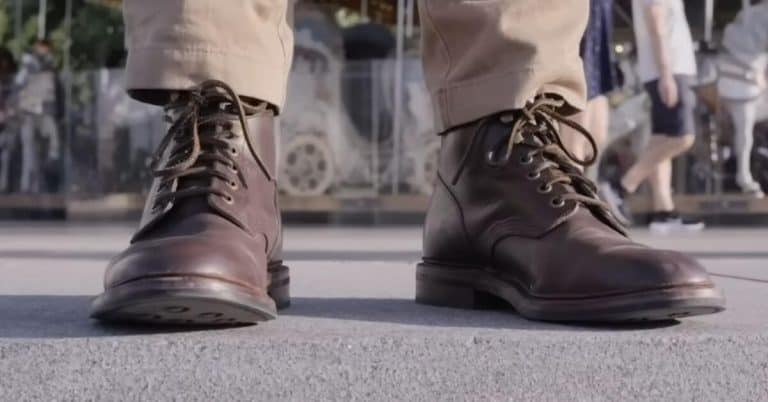Why Do the Weights Feel Heavier Today: Uncover the Mystery
Last Updated on October 20, 2023 by Justin Harris
Why Do the Weights Feel Heavier Today: The weights may feel heavier today due to factors such as lack of sleep, higher stress levels, or less caffeine in your system compared to previous workouts. These factors can affect your energy levels and strength during your workout, resulting in the weights feeling heavier.

Additionally, the ergonomics of the weights and psychological factors may also play a role in how heavy they feel. Understanding the reasons behind the perceived increase in weight can help you adjust your mindset and make necessary adjustments in your training routine.
Factors Affecting Strength Perception
Factors affecting strength perception include sleep quality and duration, caffeine consumption, and stress levels. Sleep plays a crucial role in muscle recovery and growth, so a lack of quality sleep can affect strength and performance in the gym. Caffeine is a stimulant that can enhance alertness and focus, potentially increasing perceived strength.
On the other hand, high stress levels can negatively impact strength and lead to decreased performance. The mind-body connection plays a significant role in how we perceive weights. Psychological factors, such as confidence and mindset, can alter our perception of weight heaviness.
It’s important to acknowledge that some days will naturally feel stronger than others, as various factors can influence our strength perception. By prioritizing quality sleep, managing stress, and considering caffeine intake, we can optimize our strength and performance in the gym.
Feeling Stronger Some Days, Weaker Others
There are several reasons why weights may feel heavier on certain days and lighter on others. Firstly, energy levels play a significant role in our strength and performance. If we are well-fueled with proper nutrition and hydration, our body has readily available energy to perform at its best.
However, if we are not well-fueled, our body needs to tap into energy stores, which can result in feeling weaker and unable to lift as much weight.
Another factor is delayed onset muscle soreness (DOMS). After intense exercise, our muscles go through a process of adaptation, which can cause temporary muscle soreness and fatigue. This can affect our strength and make weights feel heavier.
Psychological factors also come into play. Our mindset, stress levels, and quality of sleep can impact our perception of weight. If we are feeling more stressed or tired, weights may feel heavier even if they are the same.
In conclusion, various factors like energy levels, delayed onset muscle soreness, and psychological factors can contribute to weights feeling heavier or lighter on different days. It’s important to listen to your body, fuel it properly, and allow for adequate rest and recovery to optimize your strength and performance.
Barbell Weight Perception
The weights at the gym may feel heavier for various reasons. One reason could be the ergonomics of the weights. Gym weights may be designed differently, possibly smaller in size and more dense, making them more comfortable or easier to lift. Size and density differences play a role in how the weight is perceived by the individual.
Additionally, psychological factors can also influence how heavy the weights feel. Psychological states, such as stress levels or prior sleep and caffeine consumption, can affect strength perception in the gym. Overall, both physical and mental factors can contribute to the variation in weight perception during workouts.
Weights At Home Vs. Gym
Sometimes, weights at home may feel heavier than those at the gym due to differences in ergonomics and psychological factors. The weights at the gym could be designed differently, possibly smaller and more dense, making them feel more comfortable or easier to lift.
Additionally, your perception of weight can be influenced by factors such as your strength and level of fatigue.
Design and ergonomics
The design and ergonomics of the weights play a significant role in how they feel when lifting. At the gym, weights are often designed to be more comfortable and easy to lift. They may be smaller in size and more dense, which can make them feel lighter. On the other hand, weights at home may not have the same ergonomic features, making them feel heavier and more challenging to lift.
Size and density variations
Another factor that can make weights feel heavier at home compared to the gym is size and density variations. Gym weights may be standardized and calibrated to a specific size and density, ensuring consistency across different equipment. In contrast, weights at home may vary in size and density, resulting in a different feel when lifting them. This variation can make the weights feel heavier or harder to handle.
Psychological factors
Psychological factors also come into play when it comes to weights feeling heavier. Our mindset and perception of weight can greatly impact our ability to lift. If we believe the weights are heavier, even if they are the same as the ones at the gym, it can make them feel more difficult to lift. Additionally, factors like stress, fatigue, and confidence levels can also affect how weights feel during a workout.
Read Also,
- Do Stationary Bikes Work?
- Why Does Creatine Taste So Bad?
- Why Does Creatine Make Me Nauseous
- Why Does Creatine Powder Jump?
- Why Do Weights Feel Heavier Some Days
- The Incredible Benefits of Stationary Bikes
- Are Stationary Bikes Good Exercise?
- Why Do Squats Make My Heart Race?
- Why Do Weights Feel Heavier at Different Gyms?
- Why Do My Shoulders Pop When I Do Lateral Raises?
Understanding Strength Perception
There are several factors that can affect how heavy the weights feel during your workouts. One factor is personal expectations and mental state. If you are feeling confident and motivated, the weights may feel lighter. On the other hand, if you are feeling stressed or tired,
the weights may feel heavier. Another factor is training consistency and progression. If you have been consistently training and gradually increasing your strength over time, the weights may feel lighter as your muscles adapt. However, if you have had a break in training or haven’t been progressing consistently, the weights may feel heavier.
It is important to remember that perception of weight can also be influenced by factors such as ergonomics of the weights and psychological factors. So, if the weights feel heavier today, it could be due to a combination of these factors.
Ways To Overcome Weight Perception Challenges
When it comes to weight perception challenges, there are ways to overcome them and make your workouts more effective. Prioritizing rest and recovery is crucial, as it allows your body to repair and rebuild muscle tissues. This can help improve your strength and performance in the gym.
Consistent nutrition and hydration are also important factors to consider. Fueling your body with the right nutrients and staying hydrated can help optimize your workouts and ensure that you have enough energy to push through. Additionally, a strategic training program design can help you gradually increase your strength and prevent plateauing.
It’s important to have a well-rounded program that targets different muscle groups and includes both strength training and cardiovascular exercises. Overall, by taking care of your body and implementing these strategies, you can overcome weight perception challenges and achieve your fitness goals.
Conclusion
There are several reasons why the weights may feel heavier today. Factors such as lack of sleep, stress levels, caffeine intake, and muscle fatigue can all contribute to a decrease in strength during workouts. Additionally, the design and ergonomics of the weights can also play a role.
It’s important to listen to your body, make adjustments when needed, and not get discouraged by temporary setbacks. Remember, consistency and proper rest and recovery are key to achieving your fitness goals.






